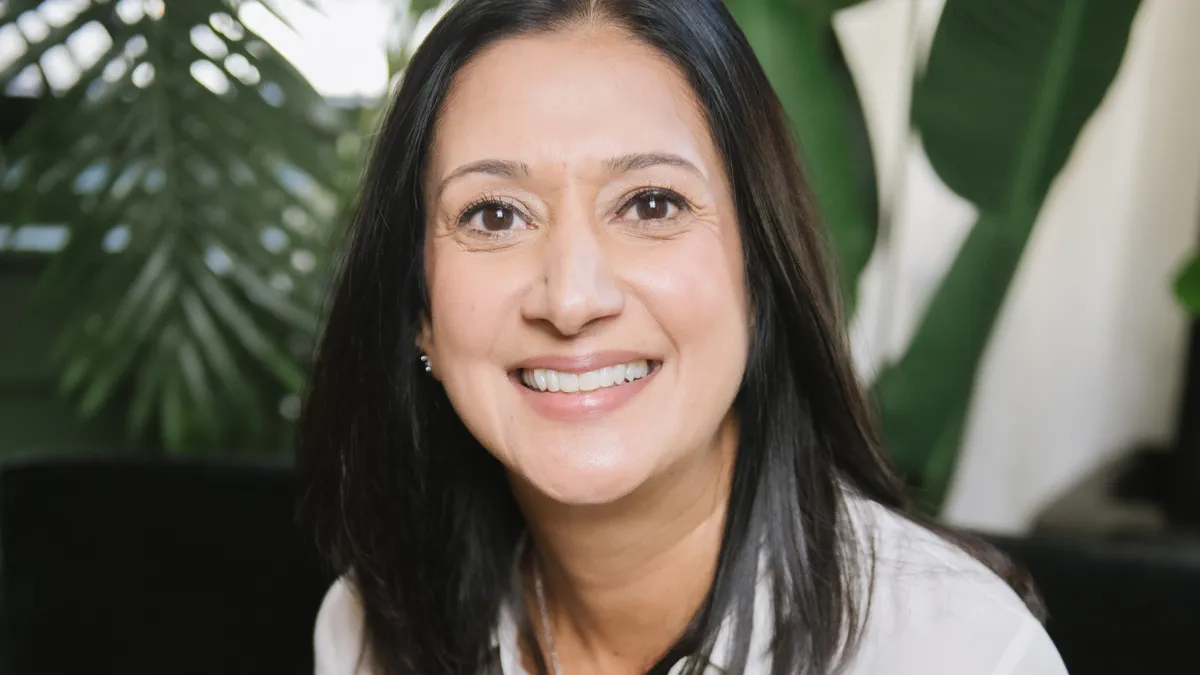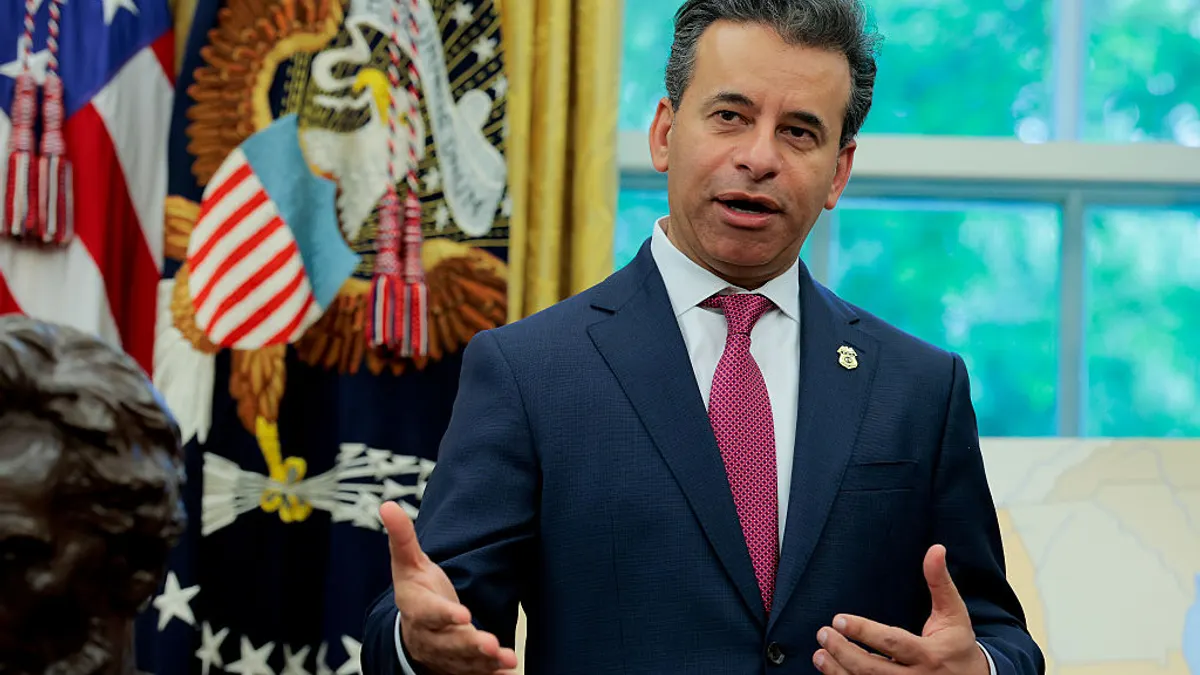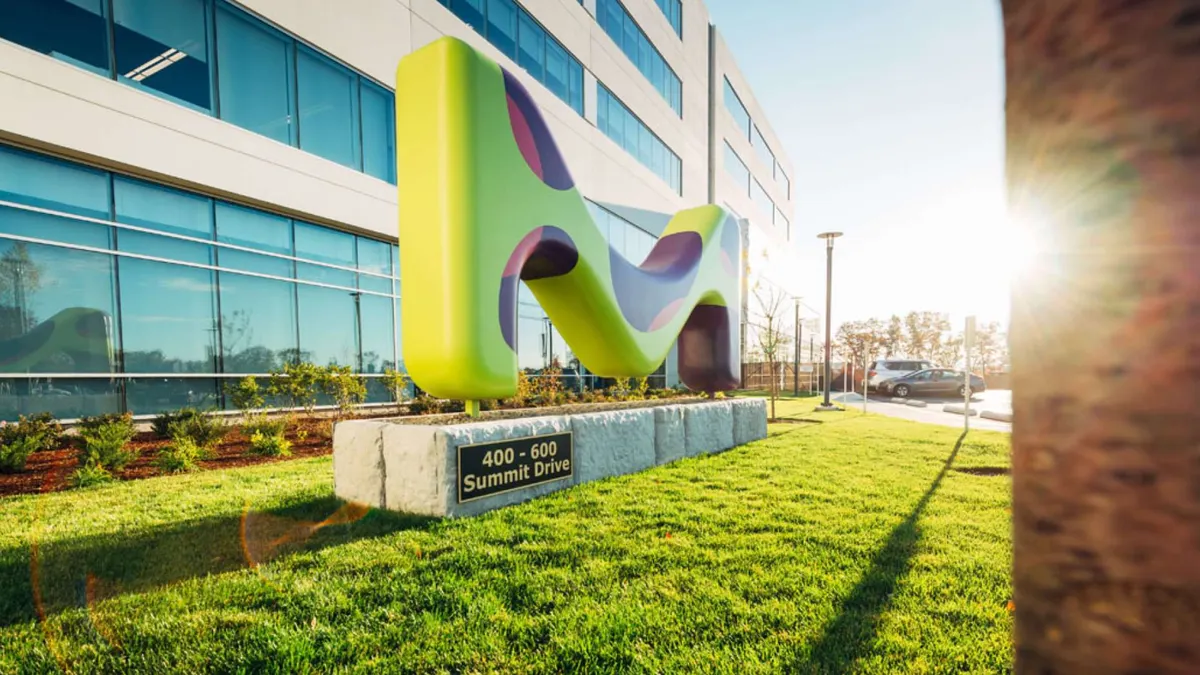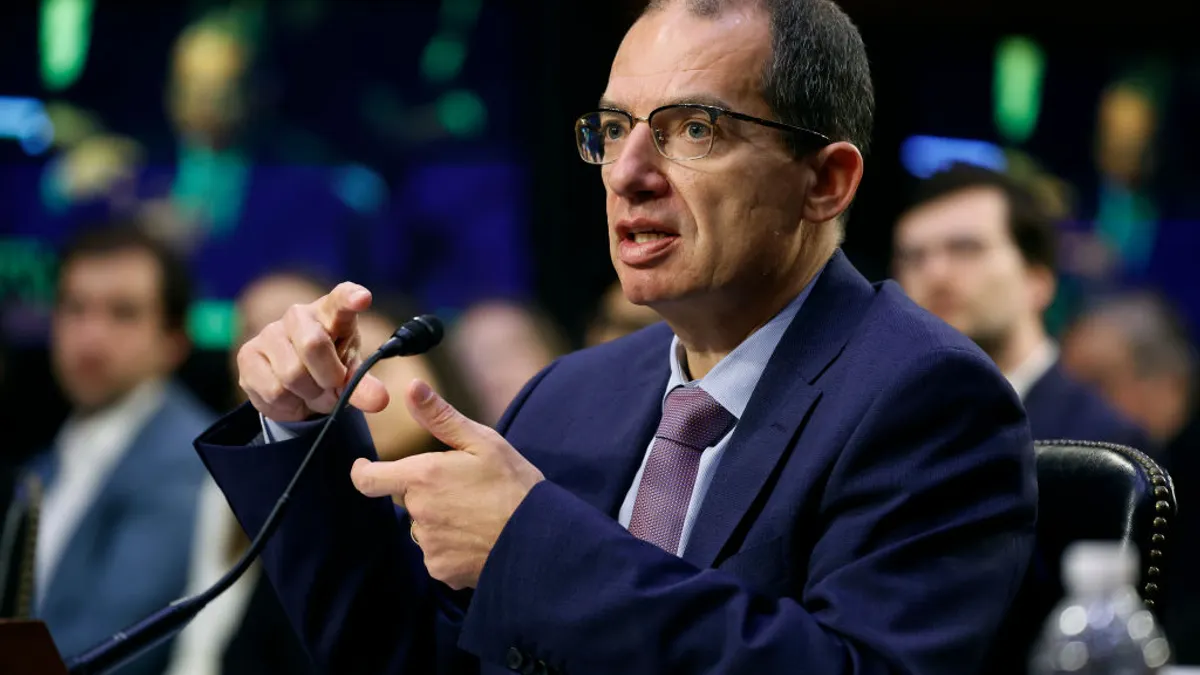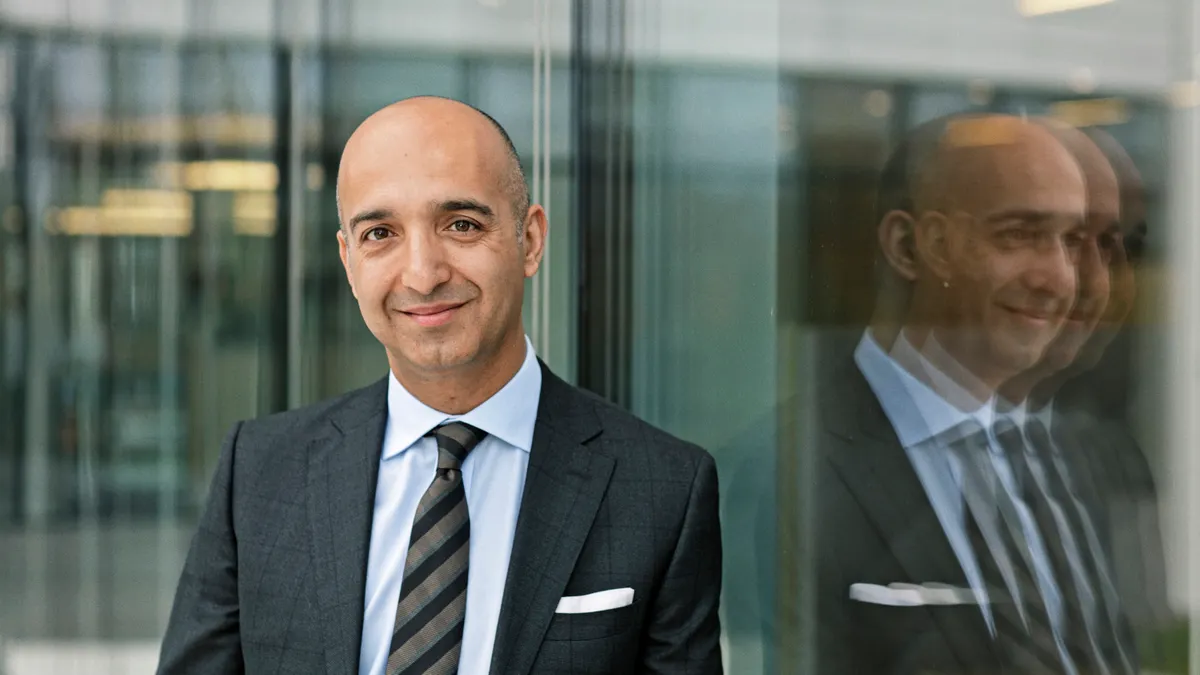During her more than 20 years in the biopharma industry, Shubh Goel has seen firsthand the power of immuno-oncology as the field offers longer lives to patients with even the toughest cancers.
Now, as the head of immuno-oncology and the gastrointestinal tumors franchise at pharma giant AstraZeneca, Goel is leading revolutionary progress in the field. This summer, the company announced results of a long-term study of the checkpoint inhibitors Imfinzi and Imjudo in patients with advanced liver cancer — 25% of whom were alive after four years receiving the drug combo, an unprecedented result for a disease that has historically seen only 7% of patients surviving five years.
“What matters to a patient is the potential to survive a certain milestone — am I going to be here to see the next anniversary, the family wedding? And we talk about that a lot in oncology,” Goel said. “For the first time when following immuno-oncology therapies through the tail, and seeing that longer-term survival, we're actually beginning to measure the benefit of it.”
Checkpoint inhibitors, now a mainstay in cancer treatment, entered the scene just over a decade ago with the FDA approval of Bristol Myers Squibb’s CTLA-4 blocker Yervoy in 2011. A few years later, the PD-1 pathway brought blockbusters like Merck & Co.’s Keytruda and BMS’s Opdivo into the mix, which continue to rack up indication approvals.
AstraZeneca entered the fray in 2017 with the approval of Imfinzi, a PD-L1 inhibitor for patients with advanced bladder cancer. Since that time and in multiple indications, Imfinzi has been used to treat more than 200,000 patients globally. For Goel, who joined the company early last year, the next stage of immuno-oncology work at AstraZeneca is focused on combination therapies at the forefront of treating patients with difficult cancers.
“It’s always been an exciting space in terms of trying to understand how we can harness our own immune system to fight an ongoing growth that shouldn’t be in our bodies, and that’s been a goal for many years."

Shubh Goel
Head of immuno-oncology, gastrointestinal tumors franchise, AstraZeneca
“I've been really lucky over the last 20 years to have worked in a number of different areas, across multiple different products and mechanisms of action that included touching some immuno-oncology along the way, but the foray at AstraZeneca is the deepest I've gone,” Goel said.
A journey into immuno-oncology
After working for several years as a research associate at Pfizer in the area of immunology, Goel entered the world of cancer treatments when she joined Millennium Pharmaceuticals (now Takeda Oncology) to promote the multiple myeloma chemotherapy Velcade in the early 2000s, prior to the first checkpoint inhibitors entering the market.
From there, Goel’s career encompassed oncology commercialization roles at household names like Bayer and Celgene as well as smaller companies like AVEO Oncology, Ordonate Therapeutics and Fennec Pharmaceuticals. The common thread was that Goel was all-in on cancer treatments, leading to her role at AstraZeneca to navigate immuno-oncology commercialization strategies in what has become a crowded field.
From small companies to international powerhouses, Goel said the goals are more similar than they are different.
“What’s driven me, and what I’ve pursued and followed, are innovative science and a focus on unmet medical need — whether it’s a small biotech or AstraZeneca, that has always been at the forefront,” Goel said. “What really strikes me about our immuno-oncology portfolio is that focus on unmet medical need in a unique way.”
And as far as immuno-oncology goes, Goel believes the concept exudes a sort of simple beauty.
“It’s always been an exciting space in terms of trying to understand how we can harness our own immune system to fight an ongoing growth that shouldn’t be in our bodies, and that’s been a goal for many years,” Goel said. “When the first PD-1s became available, that really brought immuno-oncology to life, and we’re beginning to understand that better now.”
From the beginning of immuno-oncology’s place in the cancer treatment landscape, finding the right patients has been key. From tumors to immune systems, every patient is slightly different, and an immunotherapy will only work for certain parts of the population, making biomarkers and precision drug combinations an important next step in immuno-oncology innovation, Goel said.
In the case of Imfinzi, a PD-L1 inhibitor, and Imjudo, a CTLA-4 inhibitor, the combo is a one-two punch.
“What we’re seeing with this regimen in particular is a balance of that one dose of Imjudo that allows the immune system to be ready for Imfinzi, which we’re seeing play out in the long-term overall survival without overloading or overburdening patients with toxicities they also have to navigate,” Goel said.
A quick glance at AstraZeneca’s oncology pipeline reveals a long list of combination therapies, many of which incorporate checkpoint inhibitors like Imfinzi and Imjudo, sometimes along with treatments that take another route to stop cancer growth. The combination approach brings together drugs in the company’s portfolio and fosters coordination with other companies like AbbVie, Genentech, Eisai and more.
“We’re exploring novel combinations to bring immuno-oncology forward, and the opportunity there is to continue to think about the kind of efficacy and safety trade-off and continue to improve,” Goel said. “One of the things I’m proudest of is focusing on this vision and always being open to learning — having that hunger to learn is so important.”
Balancing act
AstraZeneca celebrated three immuno-oncology approvals last year and five study readouts this year as the research engine keeps churning. With all of these plates spinning, Goel said that putting patients first and nurturing a strong team environment are what keep all of that possible.
“If we can continue to focus on patients, culture, science and dedication to doing the right thing, then we’ll continue to have a great portfolio and help more patients along the way,” Goel said.
Having spent a couple decades in biopharma, Goel said she takes a step back to look at the path that led her here and is almost in disbelief that oncology innovation has come such a great distance.
“We had no idea science [could] take us this far and that we could have this much potential to help this many patients,” Goel said. “It’s super exciting to be on the cusp of so much innovation and to be able to really think about having a portfolio of agents across every stage of disease — I don’t think 20 years ago I even knew that was a possibility.”



